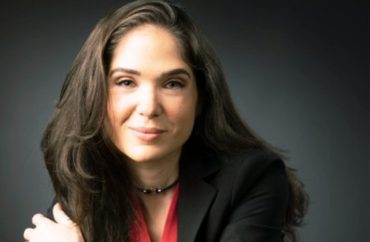
In 2016, colleges classified one-fifth of undergraduates in the United States as having a disability
The 2008 Amendments Act of the Americans with Disabilities Act has over-expanded the definition of “disability,” encouraging colleges to make students’ lives easier instead of teaching them necessary skills, a professor argued recently in Discourse Magazine.
Criminologist and Professor Colleen Eren at William Paterson University in New Jersey found upon conducting research that “the increase in the number and scope of [disability] accommodations is not anecdotal, nor a kind of confirmation bias,” she wrote.
By “accommodations,” Eren (pictured) refers to “the modification of policies, practices, and procedures; the provision of auxiliary aids and services; academic adjustments and modifications to the environment intended to remove barriers to equivalent access,” mandated by the ADA Amendments Act.
These policies were “intended to give equal access to educational opportunities and to prevent discriminatory practices against people with disabilities,” Eren wrote.
But the number of students requesting “accommodations” has multiplied, making it “now routine” for several students in each of her classes to provide a letter requesting them, according to Eren.
Woah.
“There was a 292% increase in students classified with disabilities at the top eight liberal arts colleges over the past 12 years”
Pretty strong evidence that a “disabled” label is becoming a fasion accessory for rich kids. pic.twitter.com/91veJ1wB48
— Emma Camp (@emmma_camp_) July 28, 2023
Such “accommodations” include extra time to take exams, permission to miss courses and the negotiation of due dates later than those for others in the course.
In 2016, one-fifth of undergraduates in the United States were classified as having a disability by their college. Many claimed attention-deficit disorder, anxiety or depression.
“Even as higher education enrollment has contracted, the number of those classified as having a disability has grown spectacularly, with a 53% increase between 2015 and 2022 among those seeking degrees or credit-bearing certificates,” Eren wrote.
The increase was due to expanding the definition of disability to include conditions such as attention-deficit hyperactive disorder, anxiety, depression and dyslexia.
Even more, students need not provide medical or professional documentation for such conditions; their disability status can rest on “a mixture of student self-reporting and the staff’s own observations and professional judgment.”
This expansion of the concept of disability and the share of those claiming it has primarily benefited the well-off, Eren wrote.
“The students most likely to get an accommodation are those from high-income families and those who attend the priciest, most selective colleges,” she stated.
“In fact, there was a 292% increase in students classified with disabilities at the top eight liberal arts colleges over the past 12 years, which led to their having a student population with a 4.25 times greater percentage of students with accommodations than in community colleges, which serve a disproportionate number of low-income students and students of color.”
Even more, though some progressive educators say the response should be to classify more low-income and minority students as disabled, such an approach would “deprive the students most likely to face a challenging world of the tools needed for workplace success, self-reliance and resiliency after they complete their education,” Eren wrote.
By labeling students with anxiety, depression, or some learning differences as “disabled,” college disability offices are “providing them an accommodation that doesn’t aid in promoting agency or give them tools to overcome and compete with their peers,” according to Eren.
In short, providing special treatment to so many students for the sake of “equity,” reduces the rigor of the curriculum and denies students training in the skills they need to succeed beyond college. Instead of working around challenges or emphasizing students’ frailty, colleges should teach them problem-solving and resilience skills.
MORE: U. Minnesota opens Race, Indigeneity, Disability, Gender, and Sexuality Studies Center
IMAGE: William Paterson University





Please join the conversation about our stories on Facebook, Twitter, Instagram, Reddit, MeWe, Rumble, Gab, Minds and Gettr.